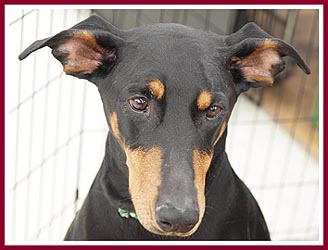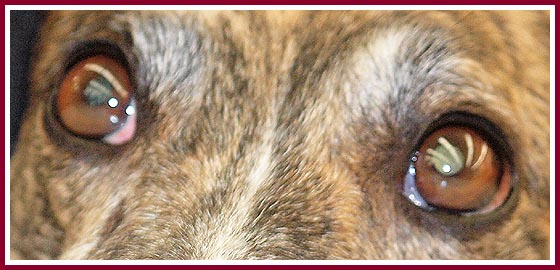An article by the Wisconsin
Department of Agriculture, Trade, and Consumer Protection (DATCP) for
Pet
Journal, May 2012
 Regulating dog sellers
and shelters in Wisconsin is new, and like any other new thing, a little
bewildering to some a little frightening to others. But it's based on a pretty
old idea - that dogs deserve good care and people deserve good pets. Regulating dog sellers
and shelters in Wisconsin is new, and like any other new thing, a little
bewildering to some a little frightening to others. But it's based on a pretty
old idea - that dogs deserve good care and people deserve good pets.
The law is
very straightforward. It requires licenses for some breeders and shelters, and
clearly states which ones those are. If you do need a license, you need to
provide:
- Adequate food, water, shelter, and space
- Adequate socialization and activity
- Adequate veterinary care
And you must:
- Keep puppies with their mothers until they are 7 weeks old
- Have a veterinarian examine dogs prior to sale or adoption
All this is
clearly laid out in detail on the DATCP website,
datcp.wi.gov/animals. Regardless of what you may read
elsewhere online, this is the definitive information. And there is a great deal
of that less- than- definitive information, which leads to misconceptions or
mischaracterizations of Wisconsin Act 90.
 One common misconception
is exactly what the goal of the law is, and what DATCP's authority is. The law
is intended to protect dogs and the people who buy them. But some say the goal
was to put "puppy mills" out of business and expected that to happen
the day the law took effect. There are three problems with that: One common misconception
is exactly what the goal of the law is, and what DATCP's authority is. The law
is intended to protect dogs and the people who buy them. But some say the goal
was to put "puppy mills" out of business and expected that to happen
the day the law took effect. There are three problems with that:
First, there is no legal definition for a puppy mill.
Many believe that any large breeding operation automatically means bad
conditions and unhealthy dogs that make bad pets. The truth is that large
breeding operations can be well run and produce well- bred dogs, and small
breeding operations can be hiding miserable conditions.
Second, regulations never apply only to the bad actors.
If that were true, we would somehow know which dairy farms produce low- quality
milk and license only those, or which food processors had unsanitary conditions
and license only those plants. How do you know these things without licensing
and inspecting everyone?
Third, no government agency can put anyone out of
business instantly. There is always a process. There is always a right of
appeal. Even though we can deny a license to an operation that clearly is
substandard and is going to stay that way, we cannot physically shut it down.
If the dogs need to be seized to protect them, we need local law enforcement to
do that. We cannot file charges; we need to ask the district attorney to file
charges saying that the person is operating without a license. And if the
person is found guilty, he or she can appeal that decision all the way to the
Supreme Court. That is what the constitution means when it says "due
process."
We always
knew that the early applicants would be the easy ones. Now we are beginning to
wade into the muddier waters of finding and licensing the hard cases. It's
going to be a slow process.
Some other
misinformation that's been circulated:
 "The law is stopping hobby breeders by making
them install expensive facilities and pay for a license."
The law does not affect the true hobbyist. It does not require a license for
anyone selling fewer than 25 dogs a year, from three litters. Among the small
breeders who do require a license, few have had a problem meeting the facility
standards with little or no change. If they do require substantial change, we
are giving them time to accomplish that as long as they meet the other
standards and their dogs are safe.
"The law is stopping hobby breeders by making
them install expensive facilities and pay for a license."
The law does not affect the true hobbyist. It does not require a license for
anyone selling fewer than 25 dogs a year, from three litters. Among the small
breeders who do require a license, few have had a problem meeting the facility
standards with little or no change. If they do require substantial change, we
are giving them time to accomplish that as long as they meet the other
standards and their dogs are safe.
"The certificate of
veterinary inspection is difficult for the veterinarian to complete, does not
allow him or her to truly evaluate the dog's health, and exposes the
veterinarian to liability for unhealthy animals."
Completing certificates of veterinary inspection, or CVI's,
should be a familiar process to accredited veterinarians. Accredited
veterinarians have an additional credential beyond their state license, which
allows them to do regulatory work - such as completing CVI's required for
transporting animals between states or internationally. The CVI's required by
Act 90 are no different than other CVI's. They ask for basic information about
the dog, such as breed or markings, age, and sex, and they mustinclude a
statement that the animal shows no signs of infectious disease at the time of
examination.
There is
absolutely nothing in the law to keep the veterinarian from noting other health
problems on the certificate. In fact, you might argue that professional ethics
demand it. It's true that some congenital conditions appear later, or that an
animal exposed to infection might not be showing clinical signs yet. But again,
if the veterinarian knows that a dog has been exposed, professional ethics
would call for noting that, or better yet, advising that the dog be kept until
it has cleared the incubation period. The law says explicitly that the CVI is
not a guarantee, and the veterinarian is not liable for unhealthy dogs.
It is true
that this is a protection that consumers may not receive if they buy from a
smaller, non- licensed breeder. This is why we always advise people to buy dogs
only from breeders who allow them to see their facilities and meet the mother
and, if possible, the father of the puppies. We also advise them to get in
writing what will happen if they are not satisfied with the dog or it becomes
ill soon after bringing it home. A wise consumer would also insist on a pre-
sale veterinary exam and the breeder's written health guarantee.
 "Consumers will think a breeder who is not licensed
is a better breeder than one who is." This logic is exactly
the opposite of what happens in reality. Breeders are using their licenses as a
marketing tool. In fact, DATCP has had to ask some who were not licensed to
remove that statement from their websites. "Consumers will think a breeder who is not licensed
is a better breeder than one who is." This logic is exactly
the opposite of what happens in reality. Breeders are using their licenses as a
marketing tool. In fact, DATCP has had to ask some who were not licensed to
remove that statement from their websites.
"This program costs taxpayers
money." The program is entirely funded by the license fees
set in statute by the Legislature. No money comes out of general taxpayer
funds. The law is written so that, if fees don't support the costs of the
program, DATCP must reduce costs or ask the legislature to raise fees.
In
conclusion, Act 90 is a law that came out of public concern over lack of
protection for dogs and consumers. It is the product of 10 years of work by
breeders, shelters, veterinarians, and consumers. Many of those who objected to
it, and still object to it, are not required to be licensed. It is not a silver
bullet; it will take time to be fully effective in reducing the number of bad
breeders in the state.
But it is a
necessary step in the right direction. If you have questions, please feel free
to call DATCP at 608-224-4872, or email DATCPanimals@wi.gov.
 Act 90:
What Happens During an Inspection? Act 90:
What Happens During an Inspection? 
 Act 90:
DATCP Dog Sellers and Dog Facility Operators License
List Act 90:
DATCP Dog Sellers and Dog Facility Operators License
List 
 Act 90: The
Good, the Bad, and the Ambiguous, by Monica Gardner, Waupaca Co.
HS Act 90: The
Good, the Bad, and the Ambiguous, by Monica Gardner, Waupaca Co.
HS 
 DATCP website: Dog Breeders & Sellers Law DATCP website: Dog Breeders & Sellers Law

 How to File a
Complaint How to File a
Complaint 

|


 Regulating dog sellers
and shelters in Wisconsin is new, and like any other new thing, a little
bewildering to some a little frightening to others. But it's based on a pretty
old idea - that dogs deserve good care and people deserve good pets.
Regulating dog sellers
and shelters in Wisconsin is new, and like any other new thing, a little
bewildering to some a little frightening to others. But it's based on a pretty
old idea - that dogs deserve good care and people deserve good pets. One common misconception
is exactly what the goal of the law is, and what DATCP's authority is. The law
is intended to protect dogs and the people who buy them. But some say the goal
was to put "puppy mills" out of business and expected that to happen
the day the law took effect. There are three problems with that:
One common misconception
is exactly what the goal of the law is, and what DATCP's authority is. The law
is intended to protect dogs and the people who buy them. But some say the goal
was to put "puppy mills" out of business and expected that to happen
the day the law took effect. There are three problems with that: "The law is stopping hobby breeders by making
them install expensive facilities and pay for a license."
The law does not affect the true hobbyist. It does not require a license for
anyone selling fewer than 25 dogs a year, from three litters. Among the small
breeders who do require a license, few have had a problem meeting the facility
standards with little or no change. If they do require substantial change, we
are giving them time to accomplish that as long as they meet the other
standards and their dogs are safe.
"The law is stopping hobby breeders by making
them install expensive facilities and pay for a license."
The law does not affect the true hobbyist. It does not require a license for
anyone selling fewer than 25 dogs a year, from three litters. Among the small
breeders who do require a license, few have had a problem meeting the facility
standards with little or no change. If they do require substantial change, we
are giving them time to accomplish that as long as they meet the other
standards and their dogs are safe.  "Consumers will think a breeder who is not licensed
is a better breeder than one who is." This logic is exactly
the opposite of what happens in reality. Breeders are using their licenses as a
marketing tool. In fact, DATCP has had to ask some who were not licensed to
remove that statement from their websites.
"Consumers will think a breeder who is not licensed
is a better breeder than one who is." This logic is exactly
the opposite of what happens in reality. Breeders are using their licenses as a
marketing tool. In fact, DATCP has had to ask some who were not licensed to
remove that statement from their websites.